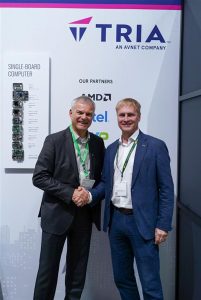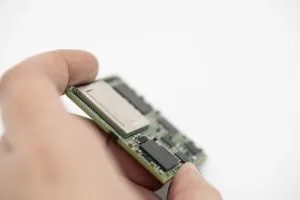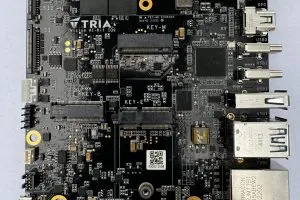
Left: Thomas Staudinger Tria Right: Paul Nieminen Qt
Design, prototyping, system assembly and product integration by Tria will be combined with software development by Qt to build user interfaces for different platforms (i.e., embedded, mobile and desktop).
The Qt 6 commercial software stack is now part of Tria’s SimpleSwitch technology platform, and can be installed seamlessly on its SMARC modules. SimpleSwitch combines SMARC connector, containers and hardware abstraction layers, and has various software templates including Python, Flutter and Qt, enabling designs to be tailored for performance and features.
Qt partner director, Paul Nieminen commented: “The bundled solution . . . provides all the confidence an OEM customer needs that our partnership of components, software and expertise will significantly reduce complexities in the development and manufacturing process while maintaining the need for speed to market.”
Also part of the collaboration is Tria’s SimpleCore incubator program, which consists of extra open-source features stored in additional repositories and can be added to any SimpleSwitch build using Qt 6.
The Qt 6 building block for SimpleSwitch is initially available for three months. Following that testing period, the development license can be purchased.
“This partnership is a significant milestone in delivering . . . compute-on-module (COM) solutions,” said Thomas Staudinger, president of Tria Technologies. The agreement will reduce time to market, he continued, adding: “Whether it is in industrial automation, medical, or any other embedded application, this collaboration helps our customers to get their projects off the ground quickly”.
“The skills gap means that young hardware engineers are looking at modular solutions to solve their problems,” Staudinger told Electronics Weekly. An advantage to this approach is that rather than being tied to the processor technology of partners, they can work with partners to develop modules for a particular market. The company aims to grow across all regions, tripling in size in the next five to six years. Organic growth will address both product offerings and Tria’s customer base, he said.
 Electronics Weekly
Electronics Weekly




